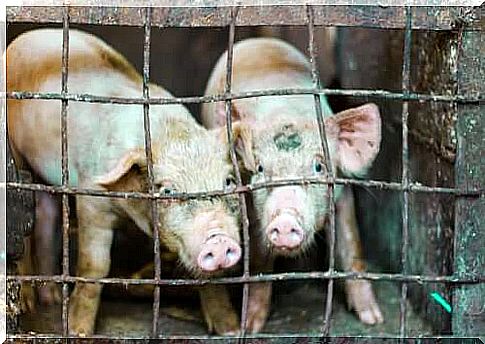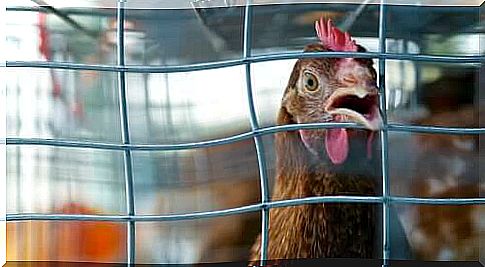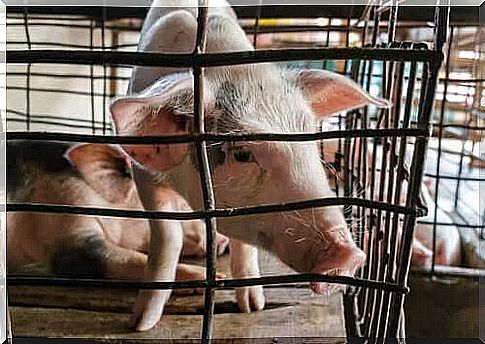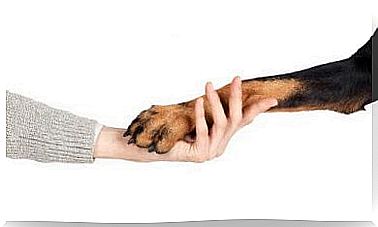End Of Animal Cages In Europe?

The raising of animals for human consumption in cages has been raising important debates in society for many years. In early 2019, this issue regained high visibility with the arrival of the European Initiative ‘End of the age of cages’ in Congress. Is this the end of animal cages in Europe?
‘End of the age of cages’, the initiative that has mobilized society in some European countries
The European Civil Initiative ‘End of the age of cages’ is a campaign by society created to combat the mistreatment of farm animals. As its name suggests, one of its main demands is the end of animal cages in the European Union.
As emphasized by the initiative, in the European Union, millions of animals spend practically their entire lives locked in cages, since their creation is intended exclusively for human consumption. Pigs, chickens, rabbits, quails, ducks and many other species are victims of commercial exploitation.
Deprivations begin when these animals are still newborns. In many cases, females are forced to nurse through cage bars and the weaning period, which is essential for the physical and cognitive development of all mammals, is generally not respected.
In addition to not knowing life in freedom, some of the basic guidelines for animal welfare are not respected in the case of farm animals. For example, they cannot do minimal physical activity because they are confined to very small spaces. They also do not know any kind of mental stimulation and are permanently subjected to contexts of high stress.

Spain is the country with the most animal cages in the EU
In the European Union, around 300 million farm animals are confined because they are raised for human consumption. In the entire European region, Spain is the country with the highest number of animal cages, as there are more than 92 million specimens in cages.
On Spanish productive farms, for example, about 98% of pigs and 88% of chickens live almost their entire lives in cages. However, the most striking number refers to the population of rabbits, which are raised incarcerated in their entirety.
Although Spanish legislation still does not recognize the rights of animals, the sanctions applicable to mistreatment have been reinforced and there is a tendency to stop seeing animals as objects.
In fact, the current concept of animal abuse includes all kinds of abuse, neglect and disregard for the basic needs of a domestic or wild animal.
However, as pointed out by Javier Moreno, director of Animal Equality, farm animals are still seen as production machines for the livestock industry. Therefore, they end up not having the same legal protection as companion animals or wild species.

Although society’s vision is changing, there is still a tendency to understand a farm animal as a provider of food, rather than a being with its own needs. For this reason, one of the struggles of initiatives like ‘End of the age of cages’ is that the production system is also obliged to respect basic freedoms for animal welfare.
‘End of the cage age’ at the Congress of Deputies: is it the end of animal cages in the EU?
With the support of more than 140 European organisations, including the FADDA and Animal Equality, the ‘End of the age of cages’ petition already has almost 600,000 signatures. In February 2019, the initiative reached the Congress of Deputies through an act organized by APDDA (Parliamentary Association in Defense of Animal Rights).
This act had the participation of the great promoter of the initiative, the international organization ‘ Compassion in World Farming ‘ (CIWF). On that occasion, its representatives once again classified the current methods of raising farm animals as cruel and unnecessary.
Furthermore, the promoters of these initiatives also expressed the conviction that it is possible to establish more dignified and healthier production methods, thus putting an end to animal cages in the EU.
The arrival of these initiatives at the Congress of Deputies is a very important achievement, even more so when it comes to a demand coming from civil society. However, the ‘End of the age of cages’ petition needs to reach one million signatures to reach the European Parliament in 2020.









